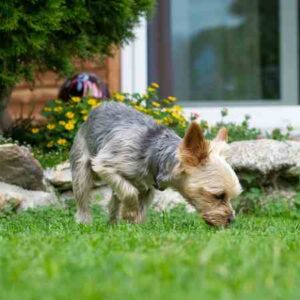Do not let their small size fool you, Yorkies are fierce little pups with big personalities and an innate territorial instinct. Yorkies have an innate desire to protect their home and their loved ones, and they will stop at nothing to defend what they consider their territory. So, whether you are a proud Yorkie owner or just a fan of these lovable pups, join me as we explore the fascinating world of Yorkies and their natural territorial instincts.
Territorial behaviour in Yorkies is an innate characteristic that has been passed down through their ancestry. Originally bred to hunt rats and other small prey in the mills and factories of Yorkshire, England, Yorkies were required to be vigilant and assertive to protect their territory. This instinct has remained with the breed, and today they are still known for their protective nature and territorial behaviour.
One of the most common signs of territorial behaviour in Yorkies is barking. They are very vocal dogs and will often bark loudly and persistently when they feel that their territory is being threatened. This can be triggered by a variety of things, such as strangers approaching their home or someone entering their personal space. Yorkies may also become aggressive if they feel that their territory is being invaded.
In addition to barking and aggression, Yorkies may also exhibit other signs of territorial behaviour such as marking their territory with urine, growling, or biting. It is important for owners to recognize these signs and take appropriate action to prevent their dog from becoming overly territorial or aggressive.
To manage territorial behaviour in Yorkies, socialisation and training are essential. Early socialization can help to expose pups to different people, animals, and environments, which can help them become more confident and less reactive to perceived threats. Training can also help to teach Yorkies appropriate behaviour, such as not barking excessively or biting.
Owners should also be aware of the triggers that can set off their dog’s territorial behaviour, and take steps to prevent or manage these situations. For example, if a Yorkie becomes aggressive when strangers approach their home, the owner may need to train them to stay in a separate room or crate when visitors arrive.
In conclusion, Yorkies are known for their territorial instincts, which can sometimes lead to aggressive behaviour. However, with appropriate training and socialization, owners can help to manage their dog’s territorial tendencies and ensure that they are well-behaved and happy companions. It is important for owners to understand their dog’s natural instincts and work with them to ensure that they are providing a safe and secure environment for their furry friend.





